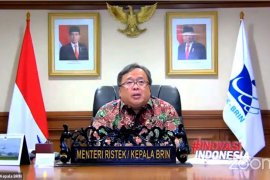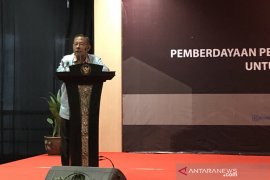"We are endorsing investment not only for exports but also replacements of imports," Nasution remarked here on Friday.
The minister pointed to the global headwinds affecting Indonesia's trade performance following escalating tensions from the US-China trade war.
"The situation is one of disquiet, with surmounting (tensions) due to the trade war. We are uncertain of it cooling off in the near future," he affirmed.
Hence, boosting investment holds significance, particularly in the processing industry that is expected to be a major contributor to stimulating exports and lowering imports, Nasution emphasized.
The government has applied an integrated online single submission (OSS) system to improve the ease of doing business environment in Indonesia, under its endeavors to boost investment and foster exports.
The streamlining of the submission system, coupled with tax incentives, are projected to drive export-based investment and import substitution.
"We are keen to increase exports and promote investment in import substitution for raw materials, including iron and steel, and petrochemical products," he stated.
Moreover, the government has identified non-oil and gas export goods that can help in improving the trade balance in the near future.
"If we are interested in exporting, we have to make a meticulous selection of the products. This is since any form of trial and error in such a scenario is quite a challenge," he explained.
The Central Bureau of Statistics (BPS) had earlier announced that Indonesia's trade balance in April experienced a deficit of US$2.5 billion, the highest recorded monthly deficit since 2013.
Exports from China, the United States, Japan, and India that remained on a declining trend applied pressure on the April exports.
Furthermore, the low price of coal in the wake of the policy in some nations to curb the imports of CPO and coal affected the exports.
Concurrently, Indonesia's imports rose with higher domestic demand, particularly for consumption goods and fuel oil, ahead of Eid Al-Fitr.
EDITED BY INE
Translator: Satyagraha, Sri Haryati
Editor: Fardah Assegaf
Copyright © ANTARA 2019












